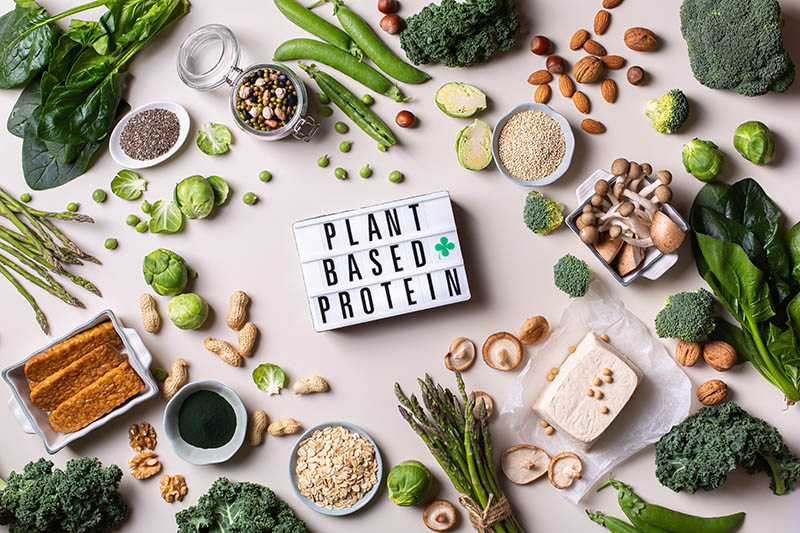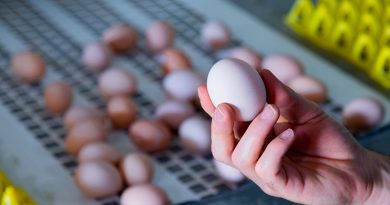The Best Plant-Based Protein Sources for Vegans
Protein is a crucial macronutrient for building and repairing tissues, producing enzymes and hormones, and maintaining overall health. For vegans, finding sufficient protein sources can sometimes feel challenging, especially when avoiding animal products entirely. However, the plant-based world offers a wealth of protein-rich foods that are both nutritious and delicious. In this blog post, we’ll explore the best plant-based protein sources for vegans, ensuring you meet your dietary needs while enjoying diverse and flavorful meals.
Why Plant-Based Protein Matters in a Vegan Diet
Protein is essential for muscle maintenance, immune system support, and overall energy. While traditional sources like meat, eggs, and dairy are off-limits for vegans, plant-based proteins can easily fulfill daily requirements when consumed in a balanced way. The key is variety and ensuring you’re getting all nine essential amino acids, either through individual foods or by combining complementary sources.
Top Plant-Based Protein Sources
1. Lentils
Lentils are a powerhouse of nutrition. With about 18 grams of protein per cooked cup, they’re not only rich in protein but also packed with fiber, iron, and folate. Lentils come in various types—red, green, brown, and black—and are versatile enough for soups, salads, curries, and even burger patties.
2. Chickpeas
Chickpeas, also known as garbanzo beans, provide around 15 grams of protein per cooked cup. They’re incredibly versatile and can be used to make hummus, roasted snacks, or added to salads and stews. Chickpeas also boast a high content of iron, phosphorus, and manganese.
3. Quinoa
Often mistaken for a grain, quinoa is actually a seed and one of the few plant-based complete proteins, containing all nine essential amino acids. One cup of cooked quinoa provides about 8 grams of protein. Its fluffy texture and nutty flavor make it an excellent base for bowls, salads, and side dishes.
4. Tofu, Tempeh, and Edamame
These soy-based foods are staples in vegan diets:
- Tofu: Known as bean curd, tofu contains about 10 grams of protein per half-cup serving. Its neutral flavor makes it suitable for savory and sweet dishes.
- Tempeh: With 15 grams of protein per half-cup, tempeh has a firmer texture and a nutty taste, ideal for stir-fries and sandwiches.
- Edamame: Young soybeans, or edamame, offer 17 grams of protein per cooked cup. They’re great as a snack or tossed into salads and bowls.
5. Black Beans and Kidney Beans
Beans are an affordable and accessible source of protein. Black beans and kidney beans both provide around 15 grams of protein per cooked cup. They’re perfect for chili, tacos, and hearty soups.
6. Nutritional Yeast
Nutritional yeast is a deactivated yeast with a cheesy flavor, beloved by vegans. Just two tablespoons provide 8 grams of protein, along with B vitamins like B12 (in fortified versions). Sprinkle it over pasta, popcorn, or vegetables for a savory boost.
7. Chia Seeds
Though tiny, chia seeds pack a nutritional punch with 4 grams of protein per two tablespoons. They’re also rich in omega-3 fatty acids, fiber, and antioxidants. Use chia seeds to make puddings, smoothies, or as an egg substitute in baking.
8. Hemp Seeds
Hemp seeds deliver 10 grams of protein per three tablespoons. They’re also an excellent source of omega-3 and omega-6 fatty acids. Sprinkle hemp seeds on salads, oatmeal, or blend them into smoothies for added nutrition.
9. Seitan
Made from gluten, the protein in wheat, seitan provides a whopping 21 grams of protein per 3-ounce serving. Its meat-like texture makes it a popular choice for vegan versions of chicken, beef, or sausages. However, it’s unsuitable for those with gluten sensitivities or celiac disease.
10. Peas
Green peas contain about 9 grams of protein per cooked cup. They’re a simple yet effective way to add protein to dishes like soups, stews, or pasta. You can also find pea protein powder as an ingredient in many vegan protein shakes.
11. Spirulina
This blue-green algae is a superfood containing 4 grams of protein per tablespoon. It’s also rich in iron, B vitamins, and antioxidants. Add spirulina to smoothies or energy bars for a nutrient-dense boost.
12. Almonds, Peanuts, and Other Nuts
Nuts are convenient and delicious protein sources. For example, almonds provide 6 grams of protein per ounce, while peanuts offer 7 grams. Nut butters are also excellent options for spreading on toast or blending into smoothies. Opt for unsweetened and natural versions to avoid added sugars.
13. Oats
Oats are not only high in fiber but also provide about 6 grams of protein per half-cup of dry oats. They’re a versatile breakfast option, great as oatmeal, in smoothies, or baked into bars and cookies.
14. Whole Grains
Grains like farro, barley, and bulgur contain 5-7 grams of protein per cooked cup. They add a chewy texture and nutty flavor to salads, soups, and pilafs while providing essential nutrients like magnesium and iron.
15. Vegetables
Certain vegetables, while not as protein-dense as legumes or grains, still contribute to your daily intake. Broccoli, spinach, Brussels sprouts, and asparagus each offer around 4-5 grams of protein per cooked cup. Pairing them with other protein sources ensures a well-rounded meal.
Tips for Maximizing Protein Intake as a Vegan
- Combine Foods for Complete Proteins: While some plant-based foods are complete proteins, others are not. Combine foods like rice and beans or hummus and whole-grain pita to ensure you’re getting all essential amino acids.
- Incorporate Protein Powders: Vegan protein powders, such as those made from pea, hemp, or brown rice protein, are convenient for boosting intake. Add them to smoothies, pancakes, or baked goods.
- Plan Your Meals: Aim for a source of protein in every meal. Balanced meals with a mix of legumes, grains, nuts, and vegetables will keep you energized and satiated.
- Snack Smart: Choose protein-rich snacks like roasted chickpeas, trail mix with nuts and seeds, or protein bars.
- Stay Informed: Regularly assess your dietary intake to ensure you’re meeting your protein needs, especially if you have higher requirements due to athletic activities or pregnancy.
Conclusion
Eating a vegan diet doesn’t mean sacrificing protein or variety. With so many plant-based protein sources available, you can create diverse, nutritious, and satisfying meals that support your health and lifestyle. By incorporating a wide range of foods like legumes, grains, seeds, and vegetables, you’ll easily meet your protein needs while enjoying the many benefits of a plant-based diet. Whether you’re new to veganism or a long-time adherent, these protein-packed options will keep you fueled and thriving.




